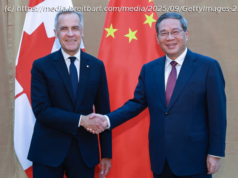 Human rights in Hong Kong are at their worst since it was handed back to China by Britain 20 years ago, activists said Wednesday, as Beijing stands accused of tightening its hold on the semi-autonomous city.
Human rights in Hong Kong are at their worst since it was handed back to China by Britain 20 years ago, activists said Wednesday, as Beijing stands accused of tightening its hold on the semi-autonomous city.
A new report by Amnesty International Hong Kong looking back at 2016 said rights in the city had rapidly deteriorated and had „failed on many fronts“.
The report cited the lack of investigation over the mysterious disappearances of five booksellers who peddled materials critical of Beijing’s elites, a saga it said had raised alarm over whether the physical safety of Hong Kong people is sufficiently guaranteed.
All five of the missing men resurfaced on the mainland.
Amnesty said the government’s failure to probe the disappearances despite pressure from rights groups contrasted to previous years when they said Hong Kong authorities had been more responsive.
A rare interpretation by Beijing of Hong Kong’s constitution which prompted the disqualification of two pro-independence lawmakers also raised questions about the autonomy of the city’s judiciary, which is protected under the „One Country, Two Systems“ agreement with China, the report said.
Attacks on journalists by police officers without a criminal investigation and attempting to deter residents from exercising their rights to freedom of assembly were further challenges, it said.
„It’s the worst year since the handover in terms of rule of law and freedom of expression,“ Amnesty International Hong Kong’s director Mabel Au told AFP.
„The government has a responsibility to ensure that citizens can express their views freely without fear,“ the report added, saying authorities should not invoke „obscure laws“ to intimidate the public.
It noted the high levels of mistrust in the government and suspicions that politicians are selling out the public for political gains as the city enters a tense election season for its leader.
„The Hong Kong government and civil servants should make defending the rights of Hong Kong people their first priority,“ the report said.
It also raised concerns after current leader Leung Chun-ying floated the possibility that the city might seek to opt out of the United Nations convention against torture that requires it to protect refugees who would face persecution if returned home.
That suggestion came after criticism from some lawmakers and sections of the public that Hong Kong was receiving too many asylum seekers.






